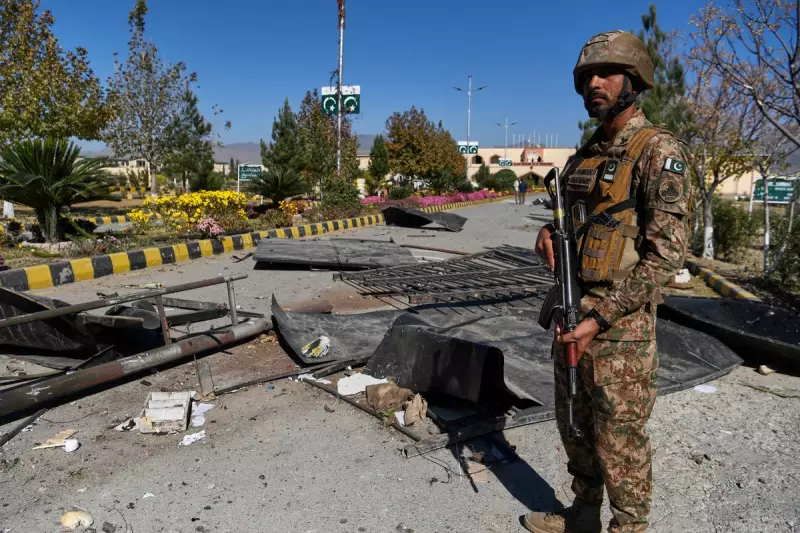
Pakistan Points Finger at Afghan Nationals Following Twin Suicide Attacks
Pakistan's interior minister has confirmed that Afghan nationals were responsible for two devastating suicide attacks that occurred this week, marking a significant escalation in the country's security crisis. The bombings targeted both the capital city and a sensitive border region, resulting in multiple casualties and raising concerns about Pakistan's deteriorating security situation.
Details of the Coordinated Attacks
According to Interior Minister Mohsin Naqvi's Thursday statement, the first attack occurred on Monday when a suicide bomber and four militants attempted to storm the Cadet College Wana in northwestern Khyber Pakhtunkhwa province. The assault triggered an intense gunbattle that resulted in three soldiers being killed before all five attackers were neutralised by security forces.
Information Minister Attaullah Tarar revealed that more than 600 people were safely rescued during the college attack, including 525 cadets, their teachers and staff members. Authorities noted disturbing parallels with the 2014 Peshawar school massacre, where a TTP splinter group killed 154 people, predominantly children.
The second attack unfolded on Tuesday when a suicide bombing outside a district court in Islamabad killed 12 people and wounded 27 others. This assault particularly alarmed security officials as the capital had previously been considered relatively secure compared to the conflict-ridden northwestern regions.
Government Response and Regional Tensions
Prime Minister Shehbaz Sharif responded to the escalating violence by offering renewed peace talks to Afghanistan's Taliban government during a televised speech on Wednesday. This diplomatic overture followed the collapse of peace negotiations in Istanbul last week and comes amid fears that a Qatar and Turkey-brokered ceasefire could completely unravel.
Pakistan's Ministry of Information stated that the cadet college assault was planned and directed from Afghanistan and executed by Afghan nationals using weapons supplied from across the border. In a social media post, the ministry identified militant organiser Zahid as orchestrating the attack with approval from TTP chief Noor Wali Mehsud.
The ministry further claimed that American-made weapons left behind during the 2021 US withdrawal from Afghanistan had found their way to the Pakistani Taliban, significantly enhancing the group's firepower capabilities.
Broader Security Implications
These attacks highlight Pakistan's worsening security landscape as the government contends with rising militancy, strained relations with Kabul and an increasingly fragile border truce. Tensions between the neighbouring nations have been particularly high since last month, when Afghanistan accused Islamabad of launching October 9 drone strikes that killed several people in Kabul.
The incident sparked cross-border clashes that left dozens of soldiers, civilians and militants dead before Qatar mediated a ceasefire on October 19. Two subsequent rounds of peace talks in Istanbul concluded without progress after Kabul refused to provide written assurances that militants wouldn't use Afghan soil for attacks against Pakistan.
Pakistan has consistently accused the Afghan Taliban of harbouring TTP leaders and fighters, allegations that Kabul continues to deny. The TTP, while separate from but allied with Afghanistan's Taliban, has grown increasingly emboldened since the Taliban seized power in 2021.
According to local media reports, authorities have arrested several suspects for questioning in connection with the Islamabad attack, with detainees captured during multiple raids. The Pakistan Army escorted journalists from Islamabad to the cadet college on Thursday, where clear evidence of the violent assault remained visible.





